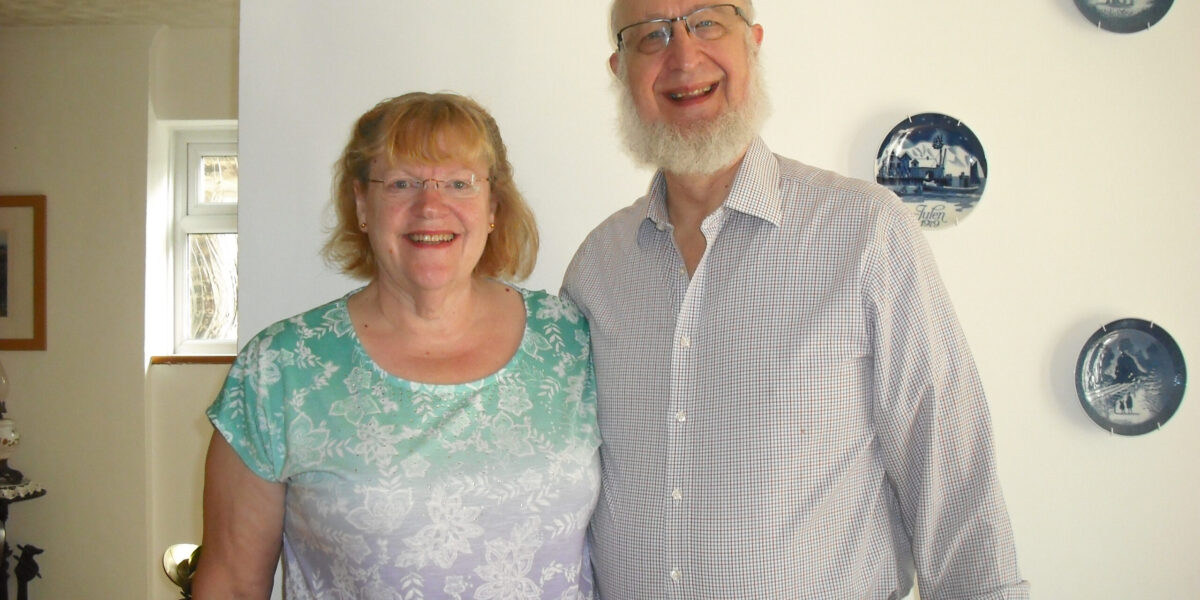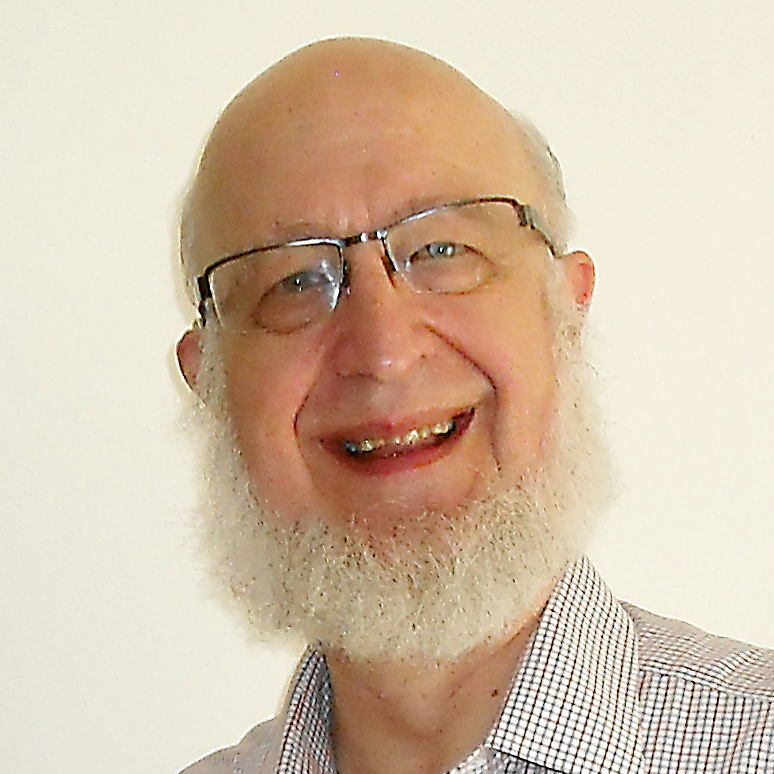The landscape of our ministry included valleys and mountaintops, open plains and obscure forests. Some views were terrifying, and some were beautiful. But, through it all, Jesus was faithful and gracious and surprised us with gifts of encouragement and miracles of healing.
Looking back on my 73 years of life, I am amazed that a young man from Kansas and a young woman from Chicago, Illinois, spent nearly half of their lives in the United Kingdom, representing an Anabaptist stream of the Christian faith.
Our ministry was divided into two parts — a church-based ministry and a counseling ministry, in which we worked with people who were struggling with trauma and abuse. I describe the first half of my ministry as a pastor who did counseling. While engaging with the second half of my ministry, I was a counselor who did pastoring. Sue and I learned profound lessons during our journey.
In 1982, we went to London, England, in response to a call from Mennonite Board of Missions, a predecessor agency of Mennonite Mission Network, to help establish a congregation with Alan and Eleanor Kreider. The Kreiders had gathered a group of young adults who were excited about Anabaptism and wanted to establish a faith community that did church differently.
For four years, we saw that community grow. When we returned to the United States for a year of reporting to supporting churches, study and renewal, the congregation decided that our presence was no longer needed. We were confused. It was hard to reconcile what we felt in our hearts about our calling with the congregation’s message.
After nearly a year of ministry wilderness, during which I worked odd jobs in the United States, I begin a five-year term with the Indiana-Michigan Mennonite Conference as the minister of evangelism. This began a season of joy and fruitfulness, as I was working at recruiting church planters, beginning new congregations and encouraging congregational growth. We worked closely with the mission agency during that time and benefitted from the encouragement and training they provided.
A highlight of that time was when I recognized that Mennonites did not define themselves primarily by history or theology but by ecclesiology, the way they understood being church together. This led me to write Building on the Rock.
Five years later, structural change meant that my role in the conference was phased out. During this time, a British congregation, near the Mennonite Centre in London, was looking for a pastor. They thought of Sue and me. We felt stirred that this was God’s way of bringing us back to the United Kingdom and the calling that had never left us.
We returned to London as mission associates, and I became the first full-time elder of Cholmeley Evangelical Church. Again, this felt like a fulfilment of God’s plan for us. Several years followed of exciting and fruitful ministry with a congregation that was interested in becoming a faith community, with sympathy towards the Anabaptist vision of church.
But in the fourth year of that ministry, things took a downturn. About a year later, I resigned from the leadership of that congregation. Once again, we struggled to understand what God wanted for us as a next step.
During this time, the open plains of ministry changed to obscure forests. I experienced burn-out and depression. Then, as Sue supported me in my recovery, she took a downhill turn herself. I recovered, but the next seven years for Sue were marked with three hospitalisations for suicidal depression and struggles with heavy medication.
I met a Christian therapist who asked me to work alongside him in his private practice, and I began the second half of my ministry. We moved to the market town of Horsham in Sussex, south of London. Here, God began to rebuild Sue and me, as I worked with others to establish Anchor Counselling. More healing came when Sue and I joined a small Baptist congregation and became part of the leadership team.
I continued to see clients until I retired, at 70 years old. Through two decades of counseling, I worked with some severely traumatised clients and rejoiced with them in their healing. I think I have ministered to more Christians more deeply as a counselor and therapist than I ever did as a pastor. And Sue and I have learned so much about the human spirit as we have walked this journey.
Out of the midst of that deep forest, God’s light broke through. After about 10 years of depression, many psychiatrists and doctors, and many different medications, Sue experienced the miracle of healing. In her lowest place, where medication was not working and we did not see a way forward, the Lord visited Sue and told her, "Everything is going to be alright." Initially, things got worse. The medications designed to keep her from going into another depression prevented her from thinking clearly or functioning normally.
Then, early one morning, we were awakened by our dogs barking. We got up to see what was happening, and I looked into Sue’s eyes. I saw a joy and wholeness that I had not seen in years! When I commented on this, Sue told me that she had stopped taking all her medications several days before, and she was feeling better than she had in years. When she told me what she had done, I insisted we go to see our general practitioner. The doctor was sympathetic and did not ask her to go back on her medication. Instead, she monitored what became a full recovery! Sue has remained well since that time. She has not done much with her music in the last few years, due, in part, to tendonitis and arthritis in her hands. She was the lead violin in an amateur orchestra in Horsham until three years ago.
I have been reflecting on the different perspectives that I have gained through counseling and pastoral ministry. In trying to explain the Anabaptist vision of discipleship, I have used an expression: "True Christianity is not about an experience to sustain a commitment but about a commitment to sustain an experience." In the most difficult times, when the presence of God felt very far away, it was not the experience that sustained our faithfulness to Jesus. It was our commitment to being faithful that sustained our experience of his presence. In trying to explain to broken people who felt they had failed God and did not deserve God’s love, I have coined another expression: "True Christianity is not about being good enough to be loved; it is about being loved enough to be good."
We are now living in Liverpool, England, and enjoying retirement. I am reflecting and writing about what I have learned in life. We moved here to be closer to two of our three children. God has once more led us to a congregation touched by the Anabaptist vision. Its members have welcomed us with open arms.
What Jesus has in mind for his church in the United Kingdom and the Mennonite witness is still unclear to us. But we are full of gratitude for God’s blessing and faithfulness.








